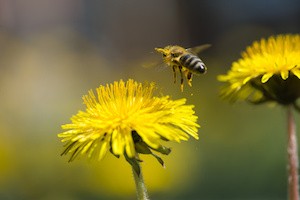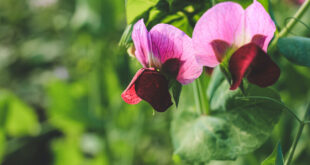Bees are not simply busy and a sound of summer – they are essential to our ecosystem. In fact Albert Einstein once proclaimed, “if the bee disappears from the surface of the earth, man would have no more than four years to live.”
A contributor to the planet
The honey bee is unique, as it is solely a contributor to the planet – it does not prey on any other species, and does untold good, through their ability to pollinate plants. They are the only insect that produces a food that humans eat and live in a highly organised society.
Nutritional value
Honey is the only food that includes all the substances necessary to sustain life, including enzymes, vitamins, minerals, and water; and it’s the only food that contains “pinocembrin,” an antioxidant associated with improved brain functioning.
They are under threat
Most of us know the pain of a bee sting, but they only ever sting in response to a threat, and dies shortly afterwards. if you are stung, ice the affected area and treat with plain vinegar or a paste of baking soda and water. If someone allergic to bees is stung, seek medical help urgently.
Bee populations are under threat in some areas, so if you see a bee in your garden looking a little the worse for wear, help them out!
Bee tips
They may be among the hardest workers on Earth, but bees still get worn out form time to time. On one collection trip, a honey bee may visit 50 to 100 flowers and each bee will produce about 1/12th of a teaspoon of honey in her lifetime. All worker bees are female; male honey bees (also called drones), have no stinger and do no work at all. Their job is to mate.
Bees don’t like the rain and will not generally fly in it. However, if you find a bee looking a bit wet and bedraggled, try and move it to a dry spot of a moderate temperature and allow it to rest. Be very gentle – ideally scoop up a tired or injured bee on a leaf and avoid handling it directly).
You may see a tired bee stumbling around in your garden. There is a very good chance it is simply hungry and worn out. Sugar water (not honey) is excellent for reviving a tired bee – dissolve 1 teaspoon of sugar in 2 teaspoons of water and leave it in an old clean soft drink lid next to the bee. Do not feed a bee honey – honey bees should only ever be fed their own honey. Some honey may contain traces of viruses that may be passed on to a wild bee.
Attract bees to your garden by planting a range of flowering plants and make the little beauties happy.









Mary Patterson - 9 years ago
From My Garden…
Industrious Little Bee.
In and out the fragrant flowers
Zealously busy one can see
The little golden honey-bee.
Fluffy stripy bottom up
Head in bloom to have a sup
Buzzing a tiny happy song
Searching for nectar all day long.
The bumblebee is busy too
Helping spread pollen a task they do.
Sweet lavender seems a favorite bush
Long time flowering rather lush
Of course there are visits to others too,
They sample most blooms of a colorful hue.
The clever harvesters start early each day
Not ‘til dusk they fly away,
One knows not from whence they came
Every day collecting just the same.
When gathering flowers for a posy one day
One rests on your hand don’t move away
Feel the soft breeze from a fluttering wing
A wonderful moment in nature…feel your heart sing.
Each tiny industrious creature
The feeling of joy it can bring
Just be aware… that this precious honey maker
Too a vital pollinator
A gift from the Creator
Working in harmony with man…
Is part of a wondrous thought out plan.
Mary Patterson 5/10/12